Quick strategies to identify, support and develop readers in the classroom
Do you remember the process you went through to learn to read? For many of us, it is something long forgotten, a journey we were led through and...

Login | Support | Contact us
Cambridge Insight : Feb 20, 2019 1:34:00 PM
5 min read

How many of us, I wonder, in our first year of teaching came across that small child who was always reading, always carrying big thick books and invariably introduced as a ‘book worm’?
And how many of us quickly figured out that while they were reading, they were not understanding?
We all know that reading comprehension is crucial for success in school and, alongside the academic effects, poor comprehension can also have a social and emotional impact. Some children have excellent word decoding skills but a number of factors may interfere with deriving meaning from written material.
We asked leading academics, Professor Christine Merrell from Durham University, Dr Paula J Clarke from the University of Leeds and Dr Claudine Bowyer-Crane from the University of York for their advice.
So, what should we read if we want to find out more about the process of learning to read and tackling specific difficulties of reading comprehension?
Scroll to the bottom to see bonus recommendations from Annie Vincent, Reporting & Guidance Specialist.
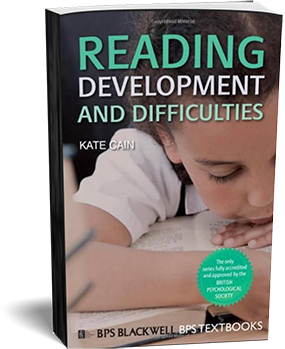
‘[…] reading is much more than a single skill: it involves the coordination of a range of abilities, strategies and knowledge.’
Kate Cain provides a valuable and scholarly introduction to reading development and focuses on the core aspects of word reading skills and reading comprehension, as well as providing a detailed examination of the specific problems that underlie reading difficulties.
Cain explores specific reading difficulties in children with developmental dyslexia and children with poor reading comprehension, as well as looking at reading assessment for educational, research and diagnostic purposes.
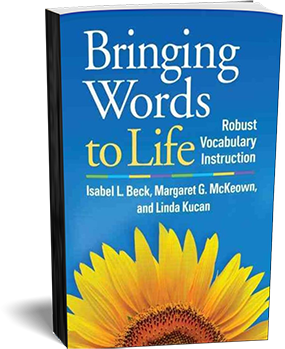
‘A rich vocabulary supports learning about the world, encountering new ideas, enjoying the beauty of language.’
This highly recommended book is relevant to all teachers from nursery upwards and not just restricted to young children.
It provides research-based and practical strategies for vocabulary development with children from the earliest grades and into the later years. It is an accessible combination of theory and practice, as well as providing summaries of current research.
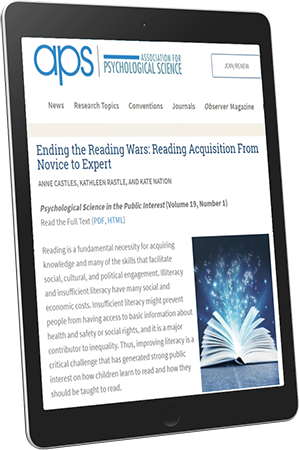
‘Learning to read transforms lives. Reading is the basis for the acquisition of knowledge, for cultural engagement, for democracy, and for success in the workplace.’
Bridging the gap between research and practice, this article sets out a plan to end the ‘reading wars,’ the debate about how best to teach children to read which has divided, teachers, parents and politicians for decades.
It recommends a balanced agenda for instruction and research in reading acquisition that is based on a deep understanding of how language and writing systems work. It aims to fill the gap between the state of research knowledge about learning to read and the state of public understanding.
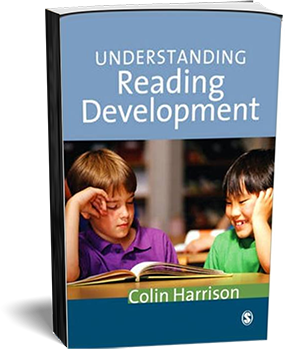
‘[…] narrative is fundamental to human development. Reading, therefore, is about much more than gaining a skill: it is about learning to be.’
Great for primary practitioners. Recommended by Professor Christine Merrell (and found to be valuable in her development of the InCAS assessment (now evolved into Cambridge Primary Insight)), this scholarly text focuses on the process of learning to read and while it is suitable for literacy researchers, it is also written with teachers in mind.
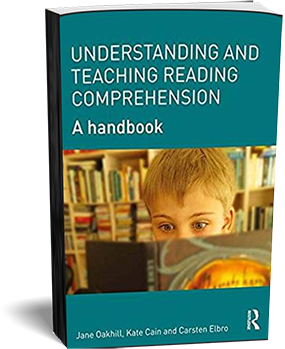
‘Learning to read is a matter of learning to crack a code.’
Great for trainee and experienced teachers. A really useful and practical handbook, this text focuses on the different skills which contribute to successful reading comprehension.
It offers easy to follow explanations of the research and looks at areas such as word reading and comprehension, development of comprehension skills, comprehension difficulties, assessment and teaching for improvement.
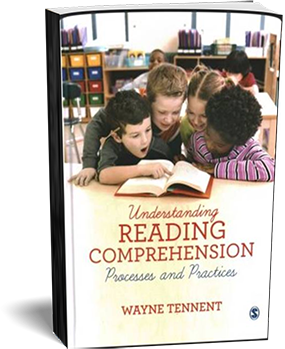
‘Reading = decoding x comprehension’
This is a very accessible and detailed guide to the teaching of reading comprehension, suitable for trainee and experienced primary teachers.
It provides an analysis of educational and psychological research, as well as offering practical classroom strategies and ideas for lessons.
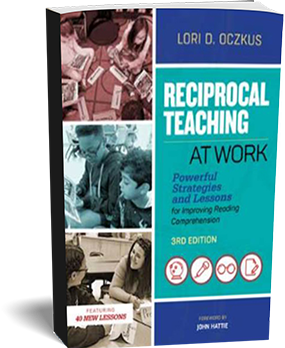
‘Many of our students could definitely use a "reading vitamin boost" to give them the energy, stamina, and power to attack any text they encounter!’
In this fully revised and expanded third edition of the bestselling Reciprocal Teaching at Work, Lori D. Oczkus provides both tried-and-true and fresh solutions for teaching reading comprehension.
Extremely useful for key stage 2, but also good throughout the primary stages and into key stage 3. Oczkus provides a comprehensive and real-world resource for teachers, full of lessons, mini-lessons and strategies to improve reading comprehension that incorporates four main strategies—predicting, questioning, clarifying, summarizing—that good readers use together to comprehend text.
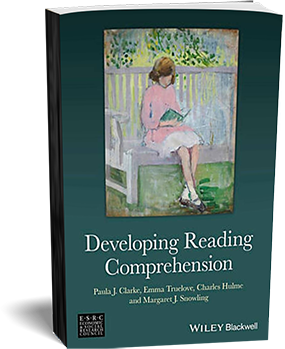
‘Only part of the task of reading comprehension is situated within the text itself; a developed understanding comes from the interaction between the text and the reader’s response to it.’
This is a highly recommended text for dealing with specific reading comprehension difficulties in children aged between 7 and 11. It is research based but written to help teachers.
The text provides evidence-based interventions for improving reading skills as well as guidance on assessment and monitoring.
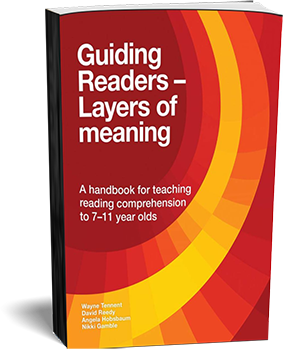
‘Reading comprehension is so much more than just reading words’
This is a really useful, hands-on resource offering practical examples for implementing guided reading sessions for pupils aged between 7 and 11.
Suitable for new and experienced teachers alike, the text gives practical advice and approaches in supporting pupils to develop strategies to extend their comprehension.
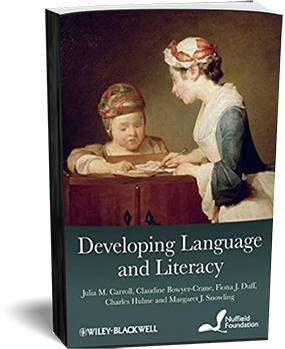
‘Delays and difficulties in speech and language provide some of the first clues that a child is at risk of reading difficulties.’
Specifically for EYFS, this scholarly, research-based text is both reader-friendly and practical.
It provides a full and detailed discussion of two early-years intervention programmes developed to improve the phonological skills, vocabulary and grammar of young children at risk of reading difficulties.
Annie Vincent, Reporting & Guidance Specialist and former secondary school English teacher and senior leader, has added her suggestions to our list. These recommendations take a more classroom-based approach and explore how you can practically apply research findings into your day-to-day teaching practice.
'Cracking the special code of reading mere blots of ink can be too easily assumed by those that possess this knowledge. Indeed, the strategies that we deploy in a millisecond can remain inscrutable for too many pupils in our classrooms.'
This is a great exploration of the science of reading, as well as taking a deeper look at the knowledge and skills teachers need to teach reading and nurture learners' desire to read. There's a good balance of research-informed analysis, looking at and understanding the concept of reading, with practical strategies and insights into classroom practice.
Pick up this book if you are developing your school reading curriculum and want a solid foundation to improve reading across your school. Suitable for teachers all the way from Primary to Upper Secondary.
'Reading difficulties are endemic, and the only chance for the vast majority of children who struggle with reading is for someone to teach them what they need to know. The only people with the necessary degree of opportunity, inclination and expertise are people who work in schools. If not us - if not you - then who?'
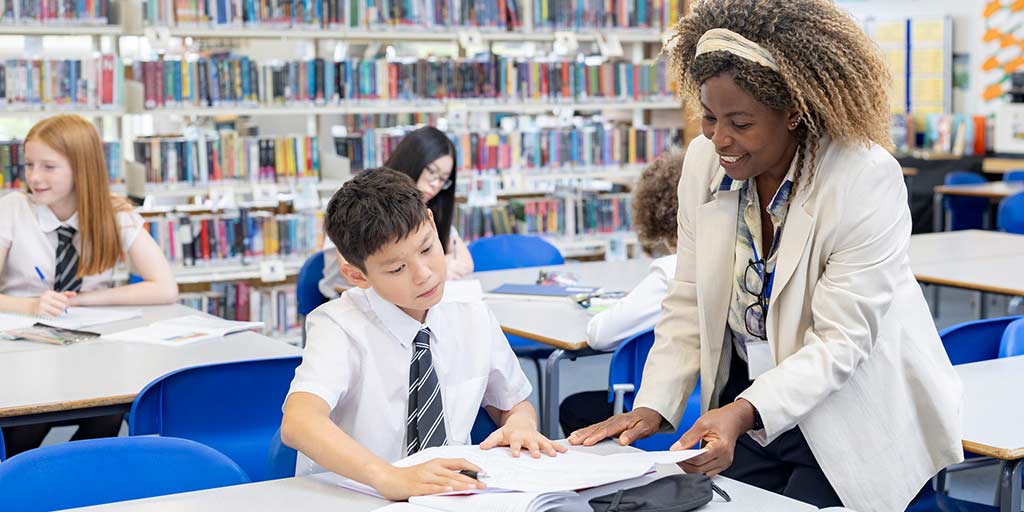
Do you remember the process you went through to learn to read? For many of us, it is something long forgotten, a journey we were led through and...

I give a fair number of talks to groups of teachers and school leaders on the subject of connecting educational research with their practice. Often I...
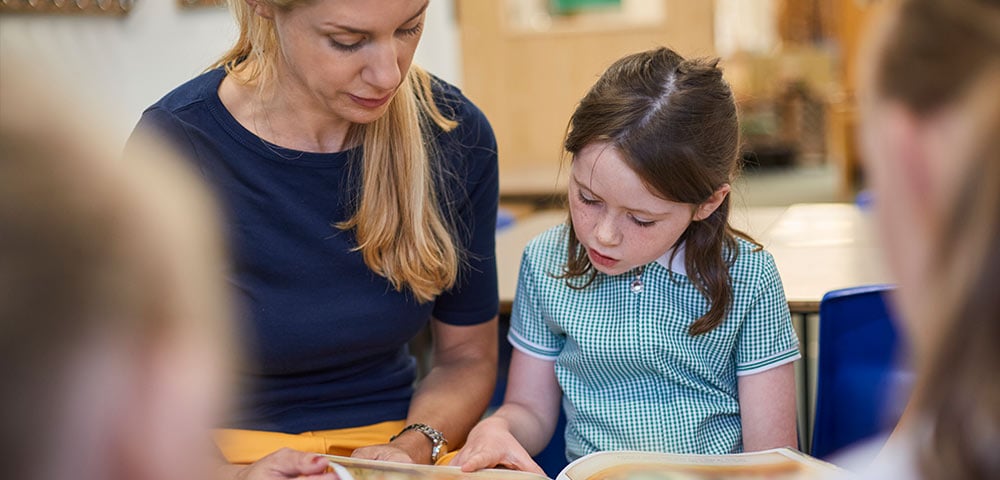
by Professors Christine Merrell and Peter Tymms Last week saw the publication of the new online and open-access report, Understanding What Works in...